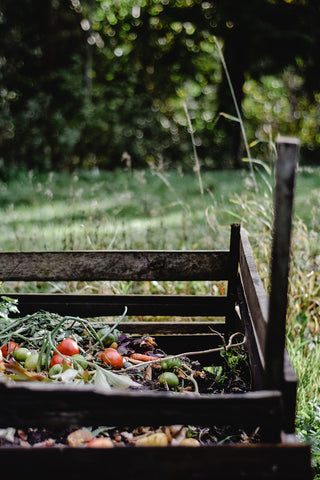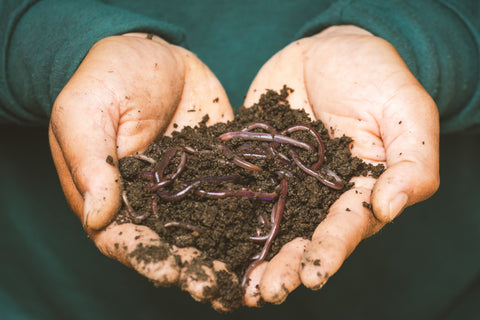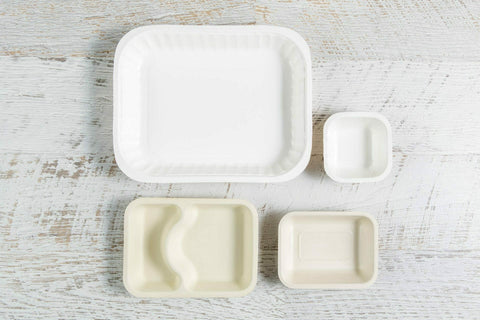Wormfood Wonders – How To Compost Your Farm Door Packaging With Ease

It's interesting to consider our planetary wellness as part of considering our own wellness. After all, who doesn't want healthy soils and fresh clean air! That's why at Farm Door we're pretty passionate about sustainability.
We invest alot of time into researching and sourcing best practice eco-friendly packaging across our family, main and kids meal range. We also take our food scraps out to the farm and the chooks and sheep help us turn the scraps into manure - oh so good for the soil! How do you like to dispose of your food waste? We’re pleased to see many councils now providing green waste bins for food scraps and paper, and if you'd like to set up your very own compost bin at home, work or school, here's some tips for composting like a pro!

Why compost?
Compost is a great soil conditioner; it adds nutrients and helps retain moisture. It also makes your plants more resistant to disease and saves money on fertilizers. That’s money saved and a happy, healthy veg patch!
Educating the next generation is an important step in the ongoing mission to save the planet. Each small change we make today will set the path for the mindset and practices of generations moving forward. Our kids love saying hello to the worms and seeing the magic of food scraps turning into a resource for the garden. Why not set up a compost site at your school and get the classroom involved!

Small space, big potential
No matter the size of your space, it’s possible to set up a compost bin. The top considerations — whether at your farm, the school veg garden or on your balcony — is to choose a spot that’s level, has good drainage and gets sunlight. This will mean your compost maintains the right balance of moisture. You can buy a purpose-built worm bin, or get creative with an old plastic container; just make sure to drill some drainage and air holes in first.
The science behind composting
Of the many elements required for healthy microbes and compost breakdown, carbon and nitrogen are the most important. Carbon provides both an energy source and the basic building block, while Nitrogen is a crucial component of the proteins, nucleic acids, amino acids, enzymes and co-enzymes necessary for cell growth and function.
The ideal C/N ratio for composting is generally considered to be around 30:1, or 30 parts carbon for each part nitrogen by weight.
Essentially, smelly wet compost generally means too many nitrogen-rich elements (add brown dry stuff, like your Farm Door containers!) Too much carbon or dry matter means your compost won’t break down quickly enough (add more veggie scraps).
Tips for composting like a pro:
So we’ve sold you on the wonders of composting — YAY! Here are our top tips for success:
- Choose a level, well-drained spot to allow worms in and water out
- Good things to compost include vegetable peelings, fruit waste, teabags, grass and plant cuttings
- Add plenty of carbon (including your Farm Door meal trays!) including ripped up cardboard, dry leaves, woody plant trimmings or straw when the compost feels too wet
- Keep dairy, fats and meat products out of the compost

Composting your Farm Door frozen meal trays couldn't be easier. Simply remove the PET polyester lining (and recycle), then rip up the cardboard sleeve and throw it in the compost bin. Read more about the eco status of our entire meal range. And share pictures of your compost bin and veg patch adventures by tagging @farmdoorau on socials!

